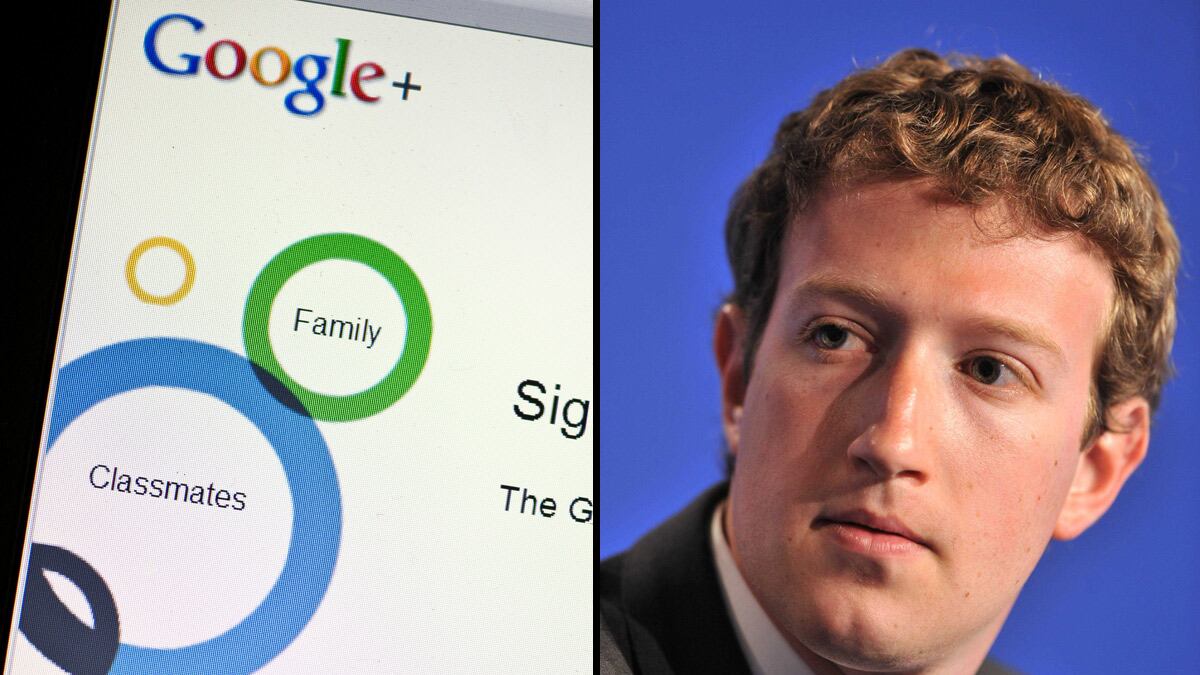Just months after Facebook got busted for running a clumsy smear campaign against Google, the two companies are in a fresh spat. Google alleges that Facebook posts containing a link enabling the recipient to sign up for Google+, the new social-networking system from Google, which is a rival to Facebook, aren’t always getting posted. Google started making this link available so that people who are already using Google+ could invite their friends to try out the new system. When you embed the link in your blog or your Twitter feed or anywhere, the first 150 people who click on it can join Google+.
The link works fine when you put it on a blog or send it out in your Twitter feed. But when you send it out on Facebook, something weird sometimes happens. To you, the sender, it appears that the link has been sent. But, in fact, your friends don’t always get that message. Your post does show up in your Facebook profile, however—so you think it has been sent, when really it sometimes hasn’t.
Bradley Horowitz, a vice president at Google who works on Google+, and another Google executive, Vic Gundotra, posted a video on their Google+ feed that appears to demonstrate this.
A Facebook spokesman provided a statement that says, “We have seen the video but have been unable to replicate the experience it shows.” The statement goes on to say that Facebook’s news-feed feature is an automated system that evaluates hundreds of factors and then “decides what to display to you and what to filter.” The statement goes on to say that its system is designed to block spam, and that “links have a history of the most abuse and are given the most scrutiny. As a result of all of these factors, a given link may be shown or filtered to people differently at different times.”

But Google isn’t so sure. “Your other messages or links you post get delivered fine,” says Horowitz. “But for some reason this one isn’t getting through.” Horowitz says he hasn’t contacted Facebook about this. And he stops short of accusing Facebook of foul play.
As for how or why this is happening, “I wouldn’t want to speculate,” Horowitz says. “Users are curious, and they’re asking us if we know about this. We’re interested to find out if this is an anomaly or if this is a consistent experience for users. It could just be a bug. It’s impossible for us to know.”
Comments have been piling up on Google+ from users—some outraged, others saying that they’re not experiencing the problem.I suggested to Horowitz that perhaps Facebook should not feel obliged to help Google+ lure its members onto a rival system. His response: “That’s a good question for them. What are their users’ expectations about sharing content on their service, and how does that map into Facebook’s own opinion about quote-unquote 'helping’ us?”Is Google being paranoid? Or is Facebook really being sneaky? At the end of the day this may not amount to much, as the whole thing is just a tempest in a high-tech teapot, the kind of stuff that makes for fun chatter at Silicon Valley parties but doesn’t matter much to the rest of the world.
And with 750 million members, Facebook is in no danger of being overwhelmed by Google+ anytime soon.






